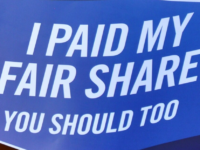Last week, Green College, an interdisciplinary graduate college on the campus of the University of British Columbia in Vancouver, hosted a medieval workshop titled The Writing of Ancient Christianity in Late Antiquity and the Middle Ages. As the title would suggest, the workshop was highly specialized and of limited interest to anyone outside of the scholarly field. Yet, as my Hub opinion piece notes, the presence of a professor of Jewish Law and Ethics alongside academics from the University of Haifa and Hebrew University in Jerusalem placed a target on the workshop that sparked online harassment of participants as well as vandalism and graffiti that called for the removal of Zionists on the walls of the college.
Few Canadians heard about the incident at UBC. They similarly were likely unaware that last week the University of Windsor’s Board of Governors refused to consider a motion to examine a controversial agreement arising from last summer’s encampment protests on the spurious grounds that the deal falls outside of its purview.











